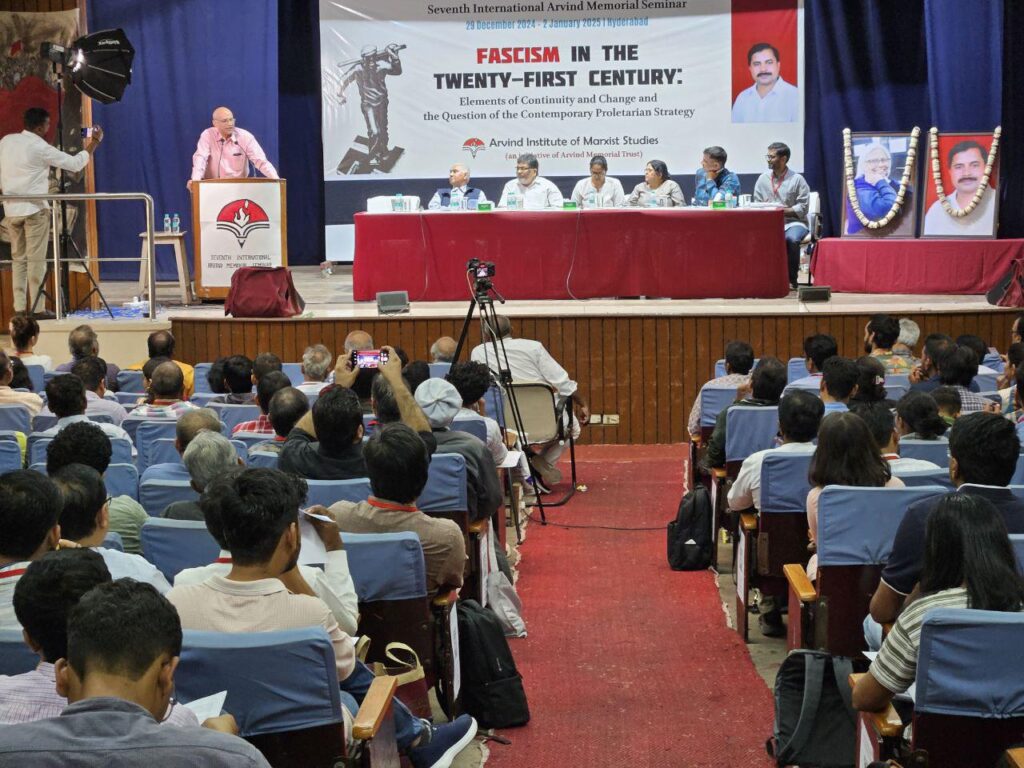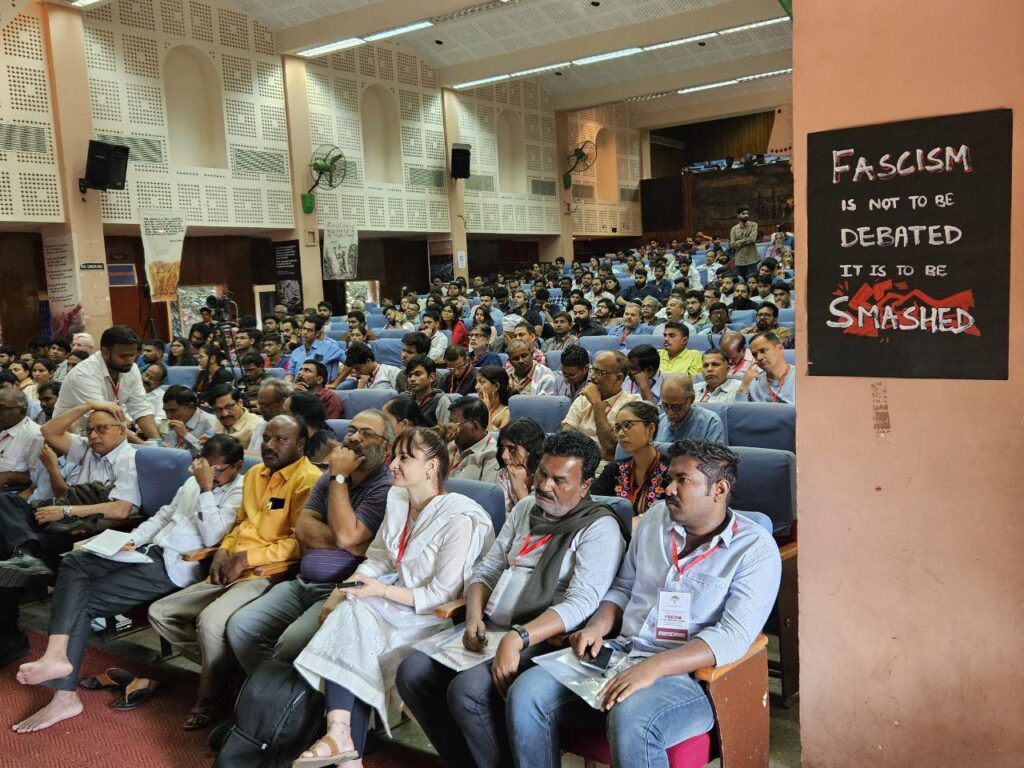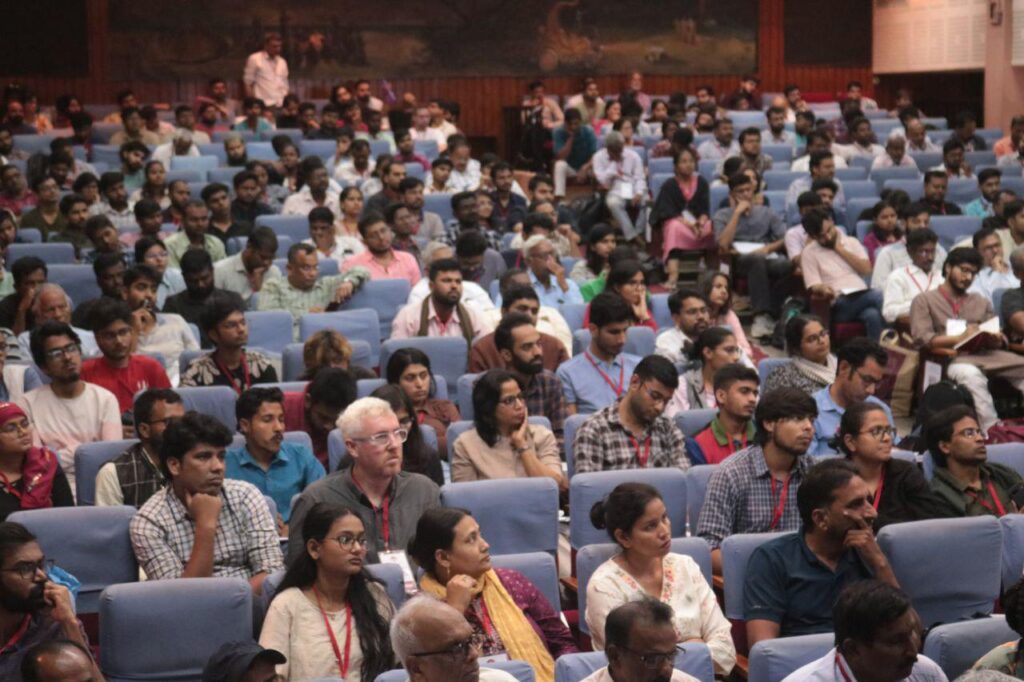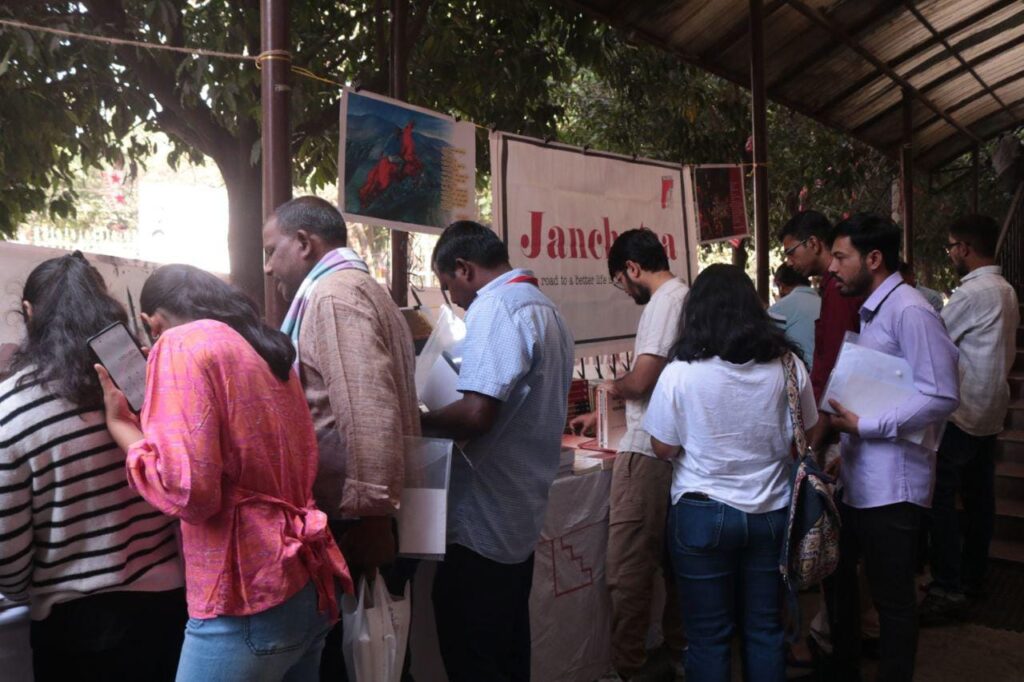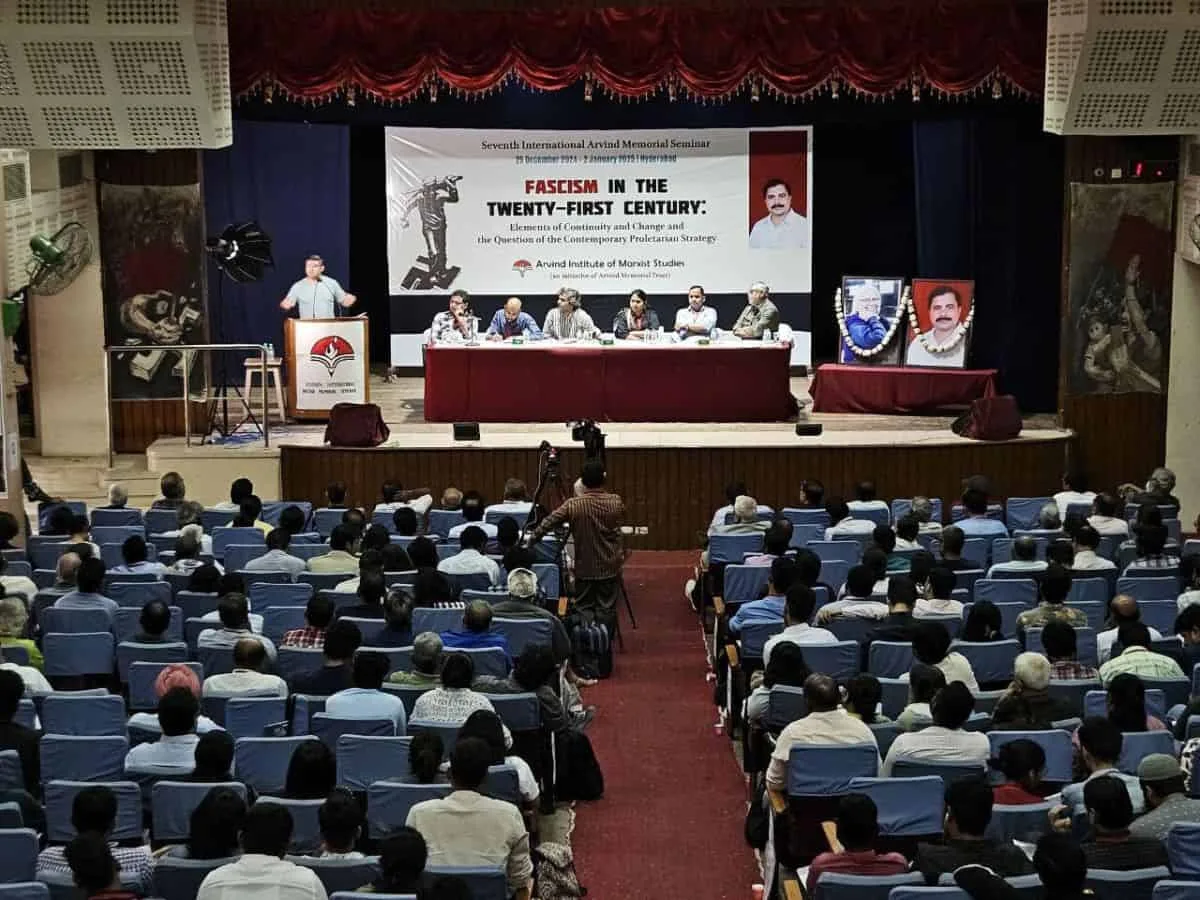Hyderabad: A five-day-long International Arvind Memorial Seminar, conducted by the Arvind Institute of Marxist Studies concluded in Hyderabad on Thursday, January 2.
The international seminar on the topic ‘Fascism in the Twenty-First Century: Elements of Continuity and Change and the Question of the Contemporary Proletarian Strategy’ was marked by the participation of activists, intellectuals and scholars from around the country and some parts of the world.
Held at the Sundarayya Vignana Kendram, at Bagh Lingampally, Hyderabad, the seminar series aimed to understand the various aspects of fascism with the ultimate aim of formulating an effective strategy against it.
Participants from Telangana, Andhra, Karnataka, Tamil Nadu, Kerala, Maharastra, UP, Bihar, Delhi, Punjab, Haryana etc. and countries such as the US, Australia and Nepal engaged in detailed discussions and debates on the question of fascism.
Day 1
On the first day of the seminar, a paper was presented by Marxist theorist and editor of a workers’ newspaper ‘Mazdoor Bigul‘, Abhinav Sinha, titled ‘Fascism in the Twenty-first Century: Elements of Continuity and Change.’
The research paper analysed the various aspects that distinguish fascism in the 21st century from that of the 20th century that Italy and Germany witnessed, through the essential characteristics of fascism throughout history.
The session in which Abhinav Sinha detailed his observations on the Modi-Shah regime in India as undoubtedly an example of a fascist regime, was followed by intense sessions of debates and questions and additions from the participants.
UP police book lynching victim’s friend for cow slaughter, dismiss attack case
Day 2
Eminent Supreme Court lawyer Colin Gonsalves gave the keynote on the second day of the seminar. Speaking about the rise of fascism and the question of law and judiciary, he described his long experience in being part of delivering justice to the downtrodden in the country.
Advocate Colin Gonsalves said that the country has been witnessing a steady decline in the Indian judiciary over safeguarding people’s rights, which peaked during the Modi-Amit Shah-led BJP regime. He held the capitalist system to be responsible for the destruction of life and livelihood in the country, he added.
On the same day, a paper written by Communist Party of India (Marxist–Leninist) Red Star leader PJ James was presented, titled ”On Global Neofascism including RSS Fascism in India and the Anti-Fascist Task.’
In the second session of the day, a Hyderabad-based political activist Anand Singh presented his paper titled ‘The Rise of Fascism in India: Origin, Evolution and Present Stage and the Question of Proletarian Strategy of Resistance.’
Anand Singh’s paper traced the origin and evolution of fascism in India which is being spearheaded by the Rashtriya Swayamsevak Sangh (RSS) and how it has permeated into state apparatus such as the army, bureaucracy, judiciary etc.
Religious, caste-based violence in India 2024: A concern that refuses to slow down
Day 3
The third day of the seminar series in Hyderabad started with the continuation of discussions on Anand Singh’s paper, followed by a paper presentation and discussion on ‘Marxist Historiography of Fascism: A Critical Reassessment’ by Shivani Kaul, a political activist and president of Delhi state aganwadi workers and helpers union.
In her presentation, Shivani Kaul addressed the need to correctly theoretically grasp the phenomenon that is Fascism, to scientifically and objectively draw the connections between the existing politico-economic conditions and historical situation to combat it.
The third day of the event also featured the paper presentation by Nicolai Messerschmidt on ‘Postcolonial Fascism: An Analysis of Hindu Nationalism through Critical and Postcolonial Theory’.
The research paper analysed how fascism’s appeal to the masses is rooted in social alienation, authoritarian personalities, and mass psychology. It drew connections between the rise of fascism in 20th-century Europe and the contemporary political climate.
Telangana to observe Jan 3 as Women Teacher’s Day
Day 4
The fourth day started with the continuation of discussions on Nicolai Messerschmidt. It was followed by the paper presentation by Delhi-based activist Sunny Singh, titled ‘Understanding of Fascism and the Strategies for its Resistance within the Indian Communist Movement: A Critical Analysis’.
The paper explored the historical trajectory of anti-fascist strategies adopted by Indian communists, drawing from key moments in India’s freedom struggle and post-independence political struggles.
Jiselle Hannah, the secretary of Australia Asia Worker Links (AAWL) presented her paper on the topic ‘The Rise of the alt-right in Australia and How We’re Fighting Back’. It provided an in-depth analysis of the socio-political conditions enabling the growth of far-right movements.
Day four also saw a discussion critiquing the Indian Marxian economist Prabhat Patnaik.
‘I am sorry,’ CM Biren Singh expresses regret over year long Manipur violence
Day 5
The final day of the seventh edition of the International Arvind Memorial Seminar in Hyderabad saw intense debate on the characterisation of Fascism in India. The day was marked by the participation of a NewYork-based political activist Eric Schmidt. He said that Donald Trump is a product of the capitalist crisis, as he gave a presentation on the Trump phenomenon. He said that Trump represents a quasi-fascist reaction in the US which is an outcome of the crisis of capitalism.
The research paper titled ‘Fascism in Our Times and the Front of Art and Literature: Some Important Inquiries,’ was presented by Revolutionary Hindi poet and political activist Katyayani. The paper elaborated on how fascism uses art and literature in their favour and the cultural strategy of Hindutva forces.
Another paper was presented on the final day of the seminar series, by KG Ramachandar, which described the current regime as an open terrorist dictatorship.
In its concluding sessions, two papers were presented in the afternoon session; “Exploring the politics of performance through the ‘Social drama’ and ‘esthetic drama’ by a Kolkata-based researcher Dishari Chakraborty and “Resurgence of Fascist ideologies in the 21st century: analysing the impact of state aggression and human rights in the middle east by Adil Kadavath, a student from Kerala.
The Arvind Memorial Trust organizes an international seminar series, each year on some important aspect of the movement for social change, in memory of Arvind Singh, a left intellectual and political activist.
